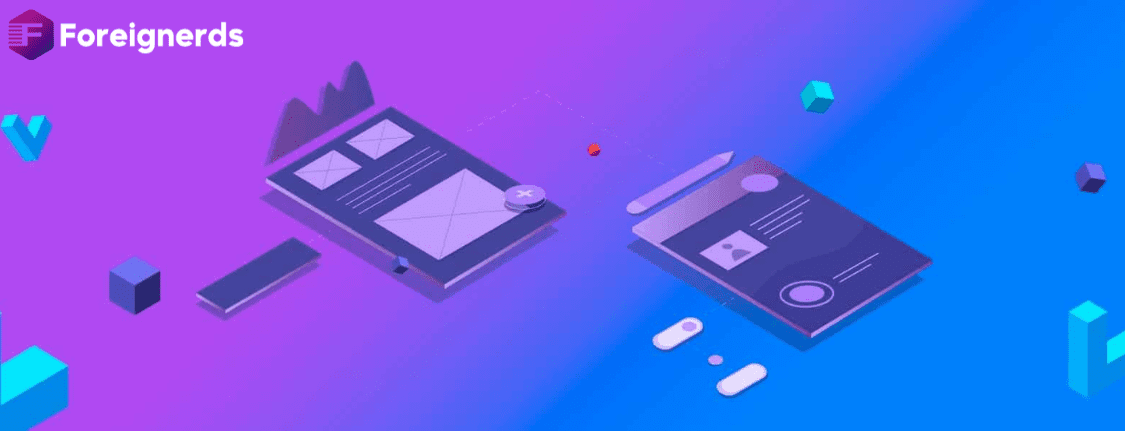- Home
- software development
- Top SaaS Frameworks to Build Products

In the ever-evolving landscape of software development, Software as a Service (SaaS) frameworks have become the backbone of innovation. These frameworks have revolutionized how applications are built, deployed, and scaled. In this article, we will delve into the top SaaS frameworks that have gained prominence in the tech industry. Whether you’re a seasoned developer or a newcomer to the world of SaaS, this guide will help you understand the essential frameworks that power modern software solutions.
The SaaS revolution started with the launch of ReactJS by Facebook in 2015. Even tech giants like Microsoft and IBM have become a part of this burgeoning trend by investing in the development of SaaS frameworks. It’s no secret that SaaS has heavily impacted nearly every aspect of the industrial domain over the past few years, from accounting and banking to customer support and marketing.
The success of any SaaS project hinges on selecting the right framework. Each SaaS framework has its unique strengths and weaknesses, and choosing the best one for your project is paramount. Your choice can affect development speed, scalability, and the user experience of your product.
Symfony is a robust and flexible PHP framework known for its versatility. It is an excellent choice for large and complex applications, offering a wide range of components that streamline development. Symfony’s commitment to stability and long-term support makes it a reliable option for enterprise-grade projects.
Docker is not exactly a framework, but it’s a critical tool in modern SaaS development. Containerization with Docker simplifies application deployment and management. It allows you to package your application and its dependencies into containers, ensuring consistency and portability across different environments.
ReactJS has become the go-to library for building dynamic user interfaces. Developed by Facebook, it’s known for its efficiency and performance. React’s component-based architecture allows developers to create reusable UI components, making it a favorite choice for frontend development.
Angular, developed by Google, is a comprehensive frontend framework that offers a full suite of tools for building web and mobile applications. It’s known for its two-way data binding and strong community support. If you need a feature-rich frontend framework, Angular is a solid choice.
Laravel is a PHP framework loved for its elegant syntax and developer-friendly features. It simplifies common tasks like routing, caching, and authentication. Laravel’s expressive syntax makes it an excellent choice for developers who value clean and efficient code.
Vue.js is a progressive JavaScript framework that excels in building interactive web interfaces. It’s lightweight and easy to integrate into existing projects. Vue’s simplicity and flexibility have earned it a dedicated following in the web development community.
Django is a high-level Python web framework known for its simplicity and speed of development. It follows the “batteries-included” philosophy, providing everything you need to build a web application. If you prefer Python, Django is an excellent choice for SaaS development.
Selecting the best SaaS framework for your project requires careful consideration. Factors like project requirements, team expertise, and long-term maintenance should influence your decision. We’ll explore these considerations in the next section.
When choosing a SaaS framework, consider factors like project complexity, development team skills, scalability, and community support. Each framework has its strengths, and the right choice depends on your specific needs.
To better understand the practical applications of these frameworks, let’s explore some real-world case studies. We’ll examine how companies have successfully utilized these frameworks to build innovative SaaS solutions.
If you’re looking to kickstart your SaaS project, consider partnering with experts. Simform is a leading SaaS development company with a proven track record of building successful software products. They can guide you through the entire development lifecycle, from ideation to deployment.
The world of SaaS frameworks is vast and continually evolving. As the SaaS market continues to expand, choosing the right framework for your project is more critical than ever. Each of the top seven SaaS frameworks we’ve discussed has its unique strengths, and the ideal choice depends on your project’s specific needs.
Embrace the SaaS revolution, and make your selection wisely. Your choice of framework can significantly impact the success of your SaaS product.
© 2013 - 2025 Foreignerds. All Rights Reserved